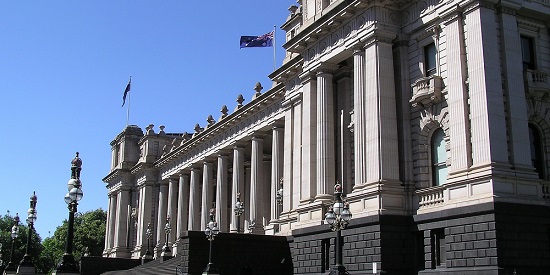Deakin politics expert calls for Upper House voting reform in Victoria
Media release
A Deakin University politics expert is calling for reform of Victoria's Upper House voting system in the wake of Saturday's election, arguing group-voting tickets undercut the will of the people.
Dr Geoffrey Robinson said there was a strong case to bring Victoria into line with the Federal Senate's voting system, which introduced reforms in 2016 that stamped out the pooling of preferences between groups of parties and brought in optional preferential voting.
Dr Robinson, a senior lecturer in politics within Deakin's School of Humanities and Social Sciences, said micro-parties at the weekend's ballot had used the same group-ticket approach that led to little-known candidates with low primary votes gaining Senate seats in the 2013 federal election, sparking widespread concern across the country.
"And so now micro-parties using that group-ticket approach look set to have a strong presence in Victoria's new Upper House in the wake of the weekend election," Dr Robinson said.
He said the system meant micro-parties, including some with "no identity or policy", were helped into parliament.
"What we have now in Victoria undercuts the ability of the electoral system to represent people's aspirations and interests," Dr Robinson said.
"Victoria's system doesn't represent public opinion and I think it elects people in micro-parties who are subject to manipulation – they know their political future depends on keeping on-side with major parties to keep their preferences and that can change their behaviour."
Dr Robinson said the rise of micro parties in the Victorian Parliament underlined the need for reform.
"It will be interesting to see what happens," he said.
"I imagine there will be pressure for reform, but on the other hand Labor might think they've done all right from the system this election."
Dr Robinson said while adopting the Federal Upper House voting system was a popular reform choice for Victoria, scrapping the system of eight electoral Regions completely and introducing a state-wide ballot for Upper House candidates was another option worth considering.

